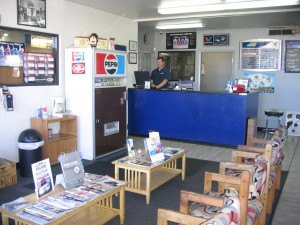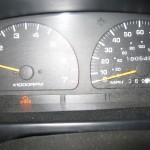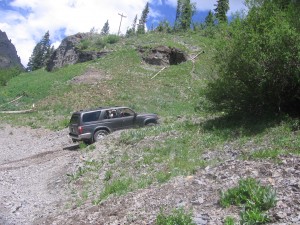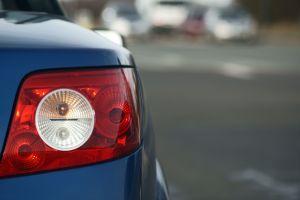Brakes are one of, if not the most important safety devices on your car! They should be maintained and inspected regularly to insure your safety and the safety of your passengers. There is a simple way to determine if you need new brake pads. Just stop, look and listen! If your car doesn’t stop when you press on the brake pedal, that is a sign you might need new brake pads! 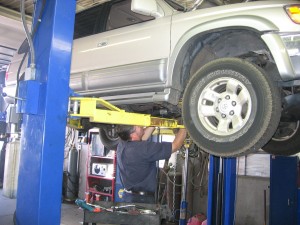 If your car pulls to one side or the other when braking, or if the brakes grab or vibrate, those are also signs you might need new brake pads. Look at the brake pads. In order to really see the condition of the brake pads the wheels on the car need to be removed. If the pad depth is less than 1/4 inch, they need to be replaced soon. If you don’t trust your own judgment have them inspected by a professional. When the safety of your family is riding on your decision, don’t take chances. Listen for a high pitched squeal. Manufacturers have built a soft-metal wear indicator into the brakes to alert the driver when the brake pads need changing. Unfortunately, if you hear a grinding sound that means the brake pad replacement is long overdue and the worn brake pads may have damaged the brake rotors. Replacing your rotors can be a very costly job; so don’t let your brake pads get to this point!
If your car pulls to one side or the other when braking, or if the brakes grab or vibrate, those are also signs you might need new brake pads. Look at the brake pads. In order to really see the condition of the brake pads the wheels on the car need to be removed. If the pad depth is less than 1/4 inch, they need to be replaced soon. If you don’t trust your own judgment have them inspected by a professional. When the safety of your family is riding on your decision, don’t take chances. Listen for a high pitched squeal. Manufacturers have built a soft-metal wear indicator into the brakes to alert the driver when the brake pads need changing. Unfortunately, if you hear a grinding sound that means the brake pad replacement is long overdue and the worn brake pads may have damaged the brake rotors. Replacing your rotors can be a very costly job; so don’t let your brake pads get to this point!
We are quickly approaching the time of year when snow is a good possibility and no one wants to be driving in the snow with brakes that might not work! So have your brake pads checked and replaced if needed. You’ll be glad you did!

